'I donate breast milk to give something back'
- Published
Lily Gordon, who was born 16 weeks early, has been receiving donor milk
Scotland's only breast milk bank has fed more than 400 babies so far this year, with milk supplied from 180 donors. But the service, based at Queen Elizabeth University Hospital in Glasgow, is looking for more mothers to donate their milk as it seeks to expand.
"I would donate blood, but I'm postnatal so I can't, so I'll donate milk instead," says Sara Stevenson from Glasgow.
Her baby, Sam, is six months old and thriving. But it was a "rocky start" to feeding him that prompted her to later get involved with the breast milk bank.
"Sam was losing a bit of weight and wasn't peeing and pooing," she says.
"I'd had so much support from my midwife and from the community support…I just felt that at least I could give something back that way."
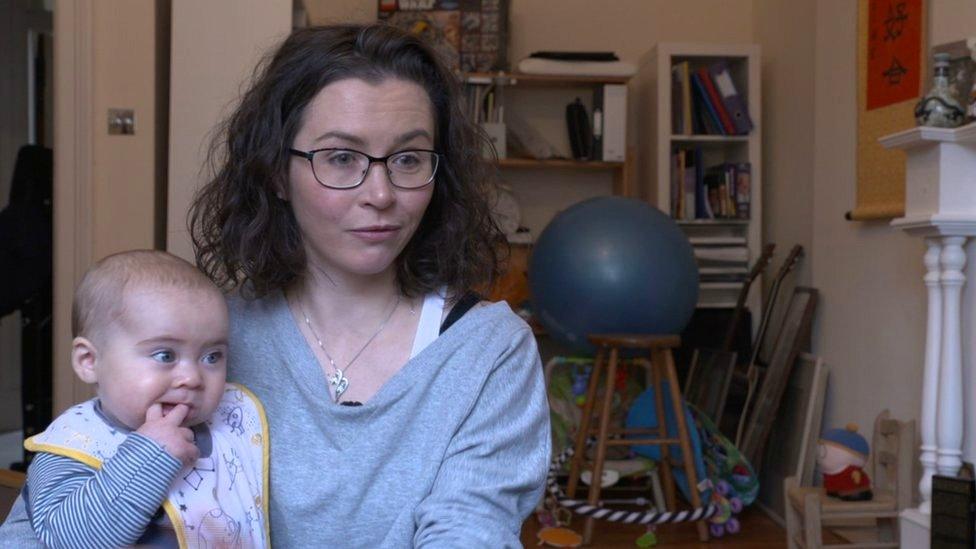
Sara Stevenson says she decided to become a milk donor after receiving good midwife and community support
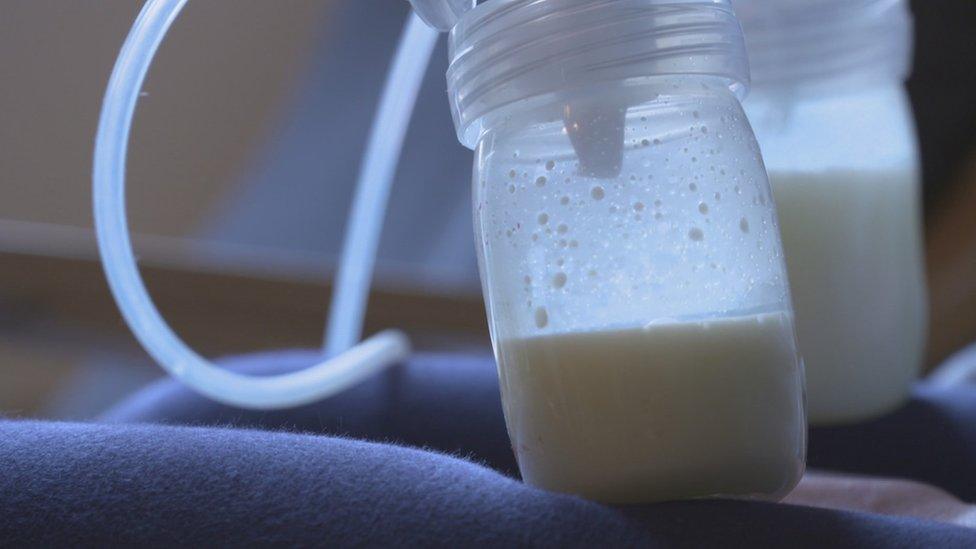
Milk from donors is taken to the bank to be pasteurised and tested then transported to neonatal units
Sara pumps milk for the donor bank at home and it is then collected by volunteer drivers.
The milk bank relies on these drivers, from Glasgow Children's Hospital Charity, to transport the milk from donors' homes to the bank, and then back out to neonatal units.
Driver Kenny Wilson, who has been a volunteering for two years, said: "Aberdeen is probably the furthest away place I go on a regular basis.
"During the summer we had a baby on Mull and we had to take milk down to Oban. One of the parents came and met us at Oban and the donor milk went over on the ferry.
He added: "I've always believed in volunteering, and have helped in hospitals in the past, so this is just an extension of that."
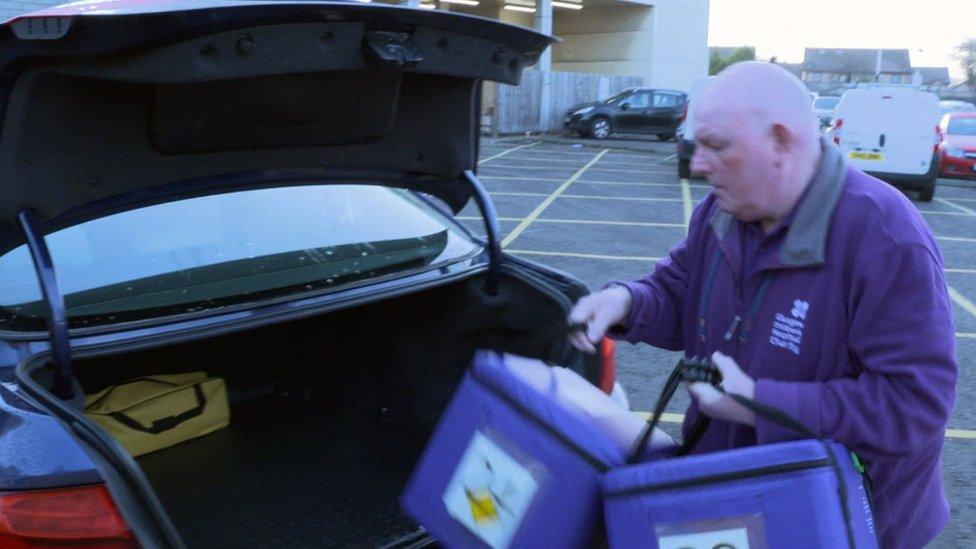
Kenny Wilson is one of the volunteer drivers who collects the milk from donors and then later delivers it to neonatal units
"We have donors from up in Inverness, right down to the Borders," says Debbie Barnett, co-ordinator of the breast milk bank, which supplies milk to neonatal units across Scotland.
She says both the donors and the drivers help ensure the bank can provide a vital service for premature and ill babies in their crucial early weeks of life.
"Mothers who have had a premature baby, or who are maybe themselves unwell, might take a little bit of time to establish their own supply," says Debbie.
"For the really small babies…those babies that are born at 24/25 weeks, their gut is really sensitive and having access to either mother's own milk or donor milk is much more protective for them.
"There are lots of anti-infective properties in breast milk as well."
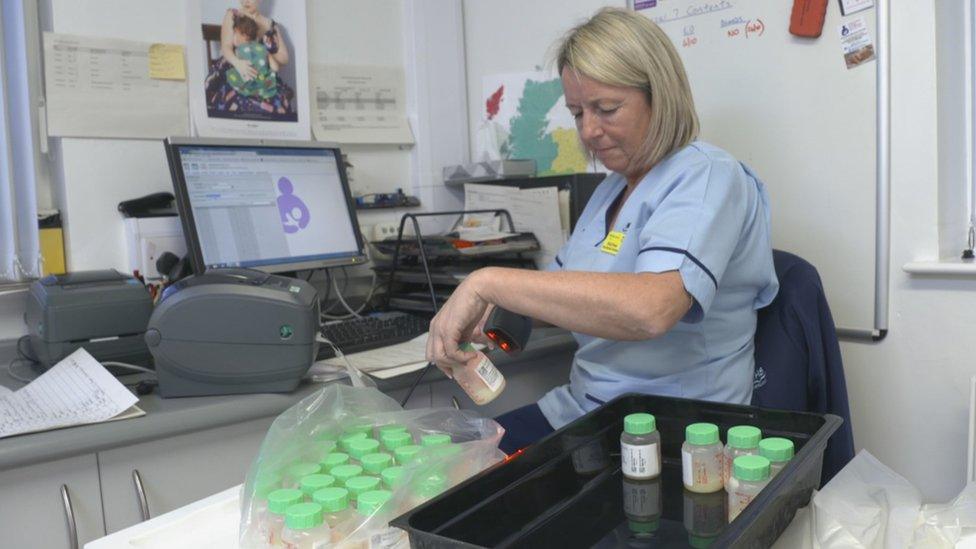
The milk is tested for unwanted bacteria
Mothers wanting to become donors are screened before their milk is used.
Debbie explains: "We then take their milk and we pasteurise that. We take samples to make sure there is no unwanted bacteria, or bugs in that milk, and then we keep it in our freezers until all the test results are in.
"And once the milk has been cleared for use, it goes back out to the neonatal units."
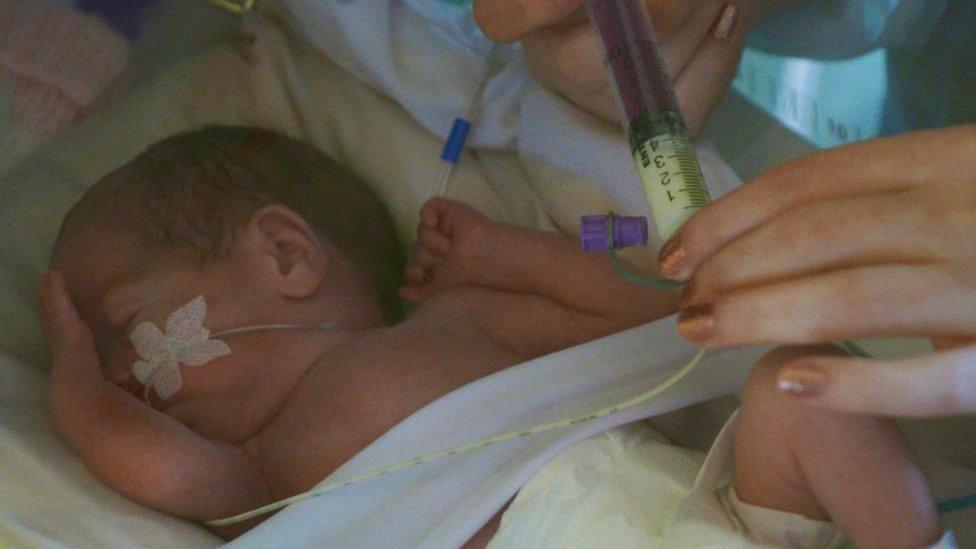
Lily Gordon was born 16 weeks early and has been getting donor breast milk
One of the babies awaiting the arrival of the donor milk is Lily Gordon. She was born 16 weeks early and is being looked after at the Princess Royal Maternity Hospital in Glasgow.
"She's been getting breast milk for seven weeks now," says her mum Danielle Gemmill.
"At the start she used to get half a millilitre every hour and now she is up to 25ml every two hours."
Lily's dad Daniel Gordon says that when she was born they were told by doctors there was a one in seven chance that she would make it. Now she is making good progress.
'Home for Christmas'
The One Milk Bank for Scotland opened at the old Southern General Hospital in Glasgow in 2013.
It replaced the old milk bank which had been running at the city's Sick Children's Hospital at Yorkhill since 1978.
In June this year, the Scottish government announced the bank would receive £300,000 of funding over three years.
It said the funding would benefit more than 700 of the most vulnerable babies a year, allowing them to be fed breast milk for a longer period of time to reduce the health risks associated with being sick or premature.
The bank now hopes to recruit more donors as it looks to widen its service.
Lily's dad Daniel says she is an example of the benefits it brings.
"She's doing well," he says. "Thankfully there are these people that actually donate the milk. It's a great thing for us."
"We would say to them - thanks very much. Keep it up.
"Hopefully we'll get Lily home for Christmas."